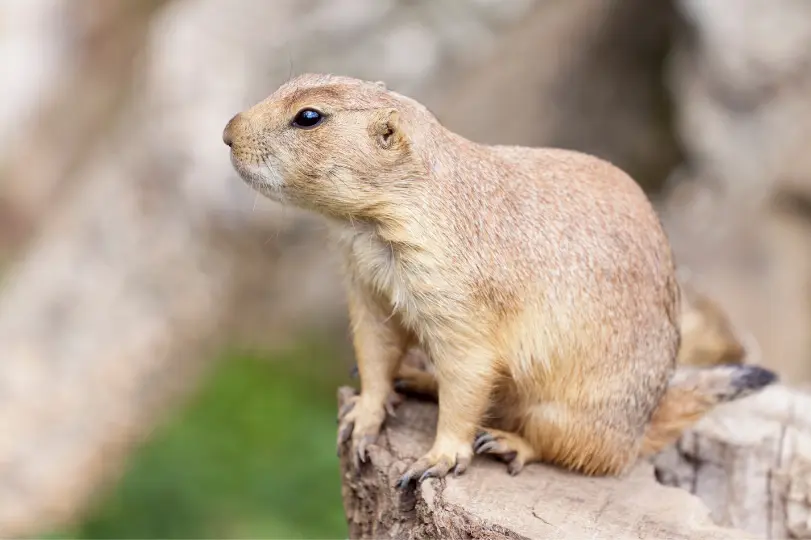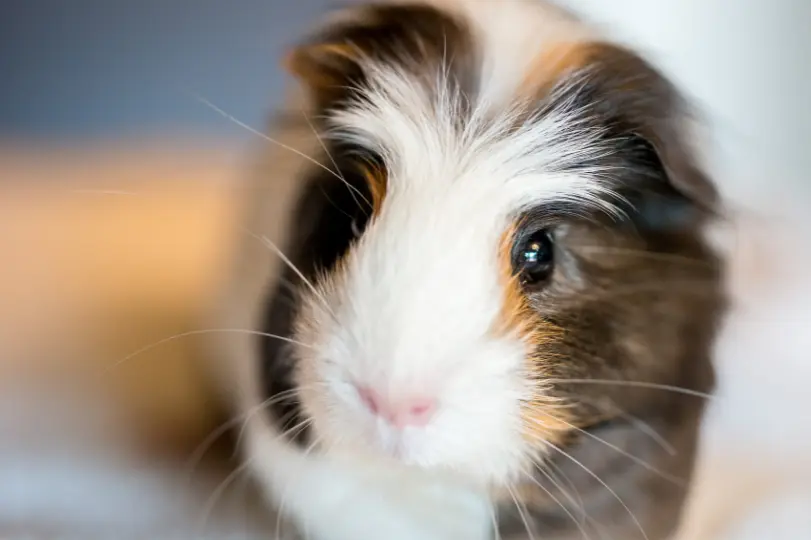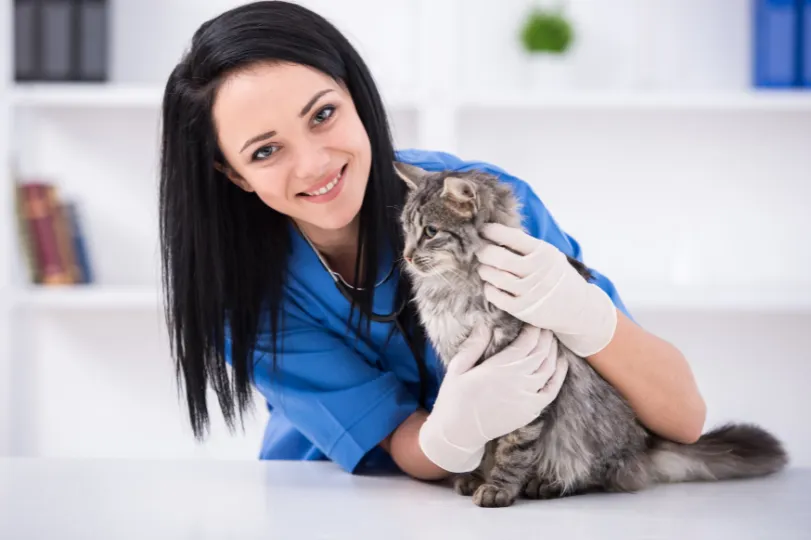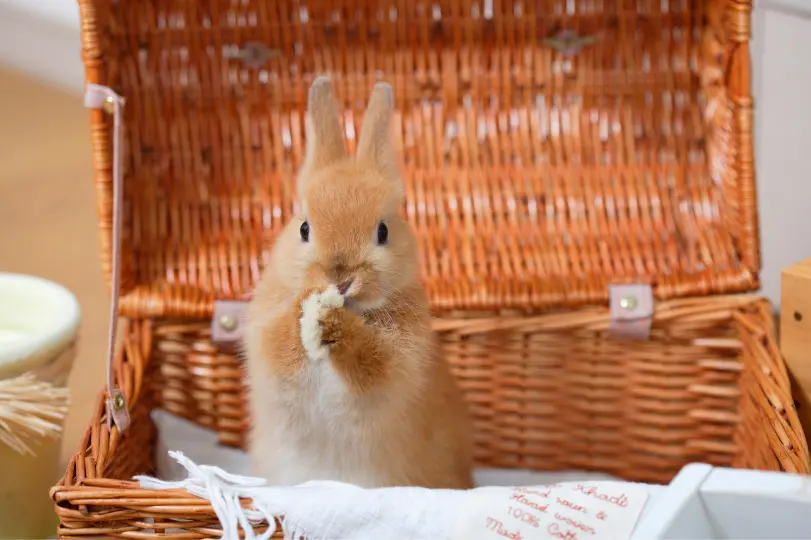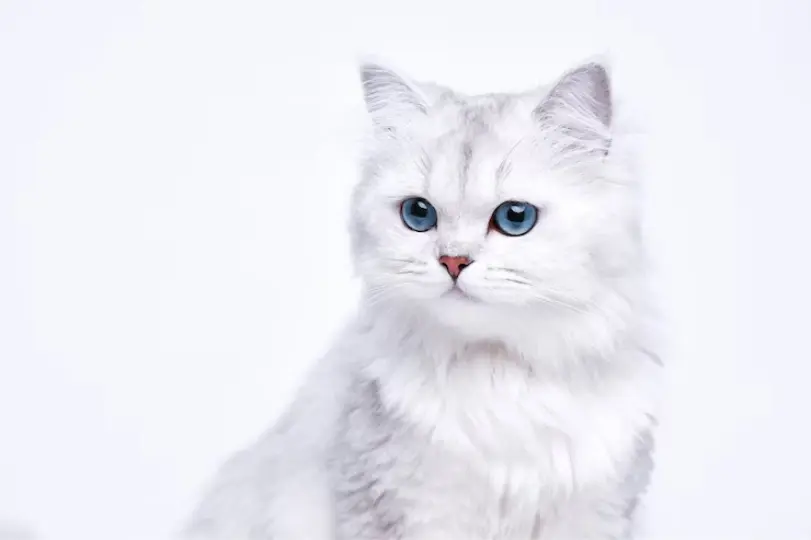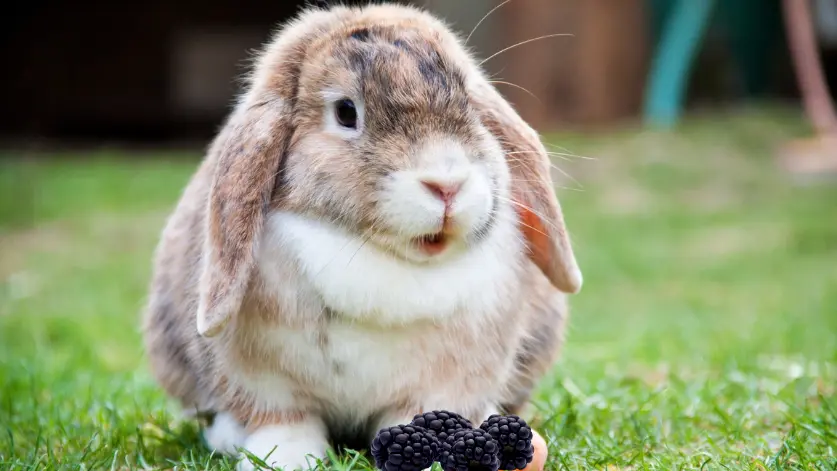
Yes, rabbits can eat blackberries. Blackberries contain many nutrients like vitamins A, B, and C, minerals, and antioxidants, which are beneficial to rabbits. Rabbits can eat blackberries, but it’s essential to serve them in moderation. It’s also important to prepare them correctly. Now let’s Explore this topic widely:
Key Aspects of a Rabbit’s Diet
Understanding the fundamental elements of a rabbit’s diet is essential to guaranteeing their optimal health. What one needs to remember is that unlike humans, not all rabbits have the same dietary preferences and requirements. Although several aspects may differ depending on the specific breed and its individual health conditions, there are a few key elements that make up the primary aspects of a customary rabbit’s diet:
- Hay: This should comprise the majority of your rabbit’s diet as it contributes to the necessary fiber for digestive health and the wear down of rabbit’s teeth in their growth rate.
- Leafy greens and vegetables: Rich in assorted vitamins and minerals, vegetables like lettuce, celery or carrot tops should ideally comprise approximately 10% of your rabbit’s daily diet.
- Water: Fresh and clean water is an unequivocal necessity for keeping a rabbit well-hydrated.
- Fruit and Treats: Although creatures as adorable as rabbits certainly qualify for constant spoiling, treats, especially sugary fruits like blackberries, should be offered in moderation to avoid adverse health reactions.
- Rabbit Pellets: intended for supplemental nutrition, aim to provide high-grade, less-processed designated rabbit pellets.
How Fruits Factor into a Rabbit’s Diet
Considered a fragrant delight, fruits not only fulfill rabbits’ gustatory senses, but also facilitate necessary nourishment to their diet. Unpacking such innate nature of culinary diversification in this manner enhances dietary excitement, ensuring essential adaptive resilience due to diverse range of eating alternatives.
However, despite numerous positives occasionally interjected by adding fruit to a rabbit’s diet, it must be noted these munchable treats should shouldn’t be used principal edibles as they can aggravate sugar disorders. Rabbits are acclamated to low sugar natural diets due to their wild counterparts who graze mostly on fibrous leaves, stems and strictly limited fruit components. Hence prospective rabbit-owners ought to proceed with caution when infusing fruits within their pet’s dietary regimen.
Served in rightful quantities and under frequent watch species, moderation, coupled with reasonably arrayed meal-proportions permits regulation; thereby gradually offering prime health benefits from fruits such as Vitamins and minerals.
Take blackberries: these muses fulfill beneficiary elements while vitamised slightly harshly with association over calorie-recount anxiety within the blackberry halves, but regulated rations identify these scores cardinal.
What You Need to Know About Blackberries
Blackberries are more than just a sweet treat; they are packed with essential elements like vitamins, antioxidants, and dietary fiber. Here’s what they bring to the table for rabbits:
- Vitamin Extravaganza: Blackberries are high in Vitamins C, K, and A, all of which are necessary for your rabbit’s health. Vitamin C aids their immune system, Vitamin A maintains good vision, and Vitamin K moderates blood-clotting.
- Loaded with Antioxidants: The dark color of blackberries indicates a high concentration of antioxidants, which can protect your rabbit’s cells against damage.
- Dietary Fiber Advantage: The fiber content in blackberries promotes digestive health in your pet.
However, not all that glitters with blackberries is gold for rabbits. These berries can be very sweet, indicating a high sugar content. While a trivial amount isn’t harmful, a large or consistent intake of sugary foods can lead to obesity, tooth decay, and other sugary food related disorders in rabbits.
Can Rabbits Eat Blackberries?
Yes, rabbits can eat blackberries – but it’s essential to serve them in moderation. It would help to think of blackberries, or any other fruits, as more of a treat than a regular component of your rabbit’s diet.
Excessive consumption of any fruit leads to a high intake of sugar, which is unhealthy for rabbits and could cause obesity and other health complications. A regular diet for rabbits primarily constituted of hay, supplemented by vegetables and leafy greens, often suits best for maintaining their optimal health.
The actual serving size depends on your rabbit’s overall health and size. For a rabbit weighing roughly 6 pounds, a single blackberry every other day is a balanced measure. However, it’s important to keep track of nutritional values along with practice-determined standards.
Remember to thoroughly rinse the blackberries to remove any pesticides or harmful substances before serving. Also, introduce this new treat gradually to prevent any adverse reacts.
Also Read: How long can a rabbit go without eating
Petvetfoodtips
The Nutritional Benefits of Blackberries for Rabbits
Blackberries, when given as a treat or supplement, are teeming with various beneficial components that can help ensure your rabbit stays vibrant and healthy:
- Rich in Antioxidants: These combat harmful free radicals in a rabbit’s body, hence boosting their general health and immunity.
- Packed with Vitamins: Particularly rich in Vitamin C which contributes to a robust immune system, and Vitamins K and A which support a rabbit’s blood clotting mechanisms and vision respectively.
- Dietary Fiber Source: This aids in digestion while ensuring a constant and healthy bowel movement. While hay should provide most of a rabbit’s fibre intake, blackberries can slightly contribute to hitting the desired fibre mark.
- Low-Calorie Treat: Blackberries make great occasional treats due to their low-calorie count. Rewarding your rabbit without excessively increasing their calorie intake is a fait accompli.
- Other Minerals and Vitamins: Having blackberries as an occasional treat also makes sure the rabbits get their fair share of other vitamins like Vitamin E, minerals like magnesium, potassium and calcium essential for bone health, heart and nervous function.
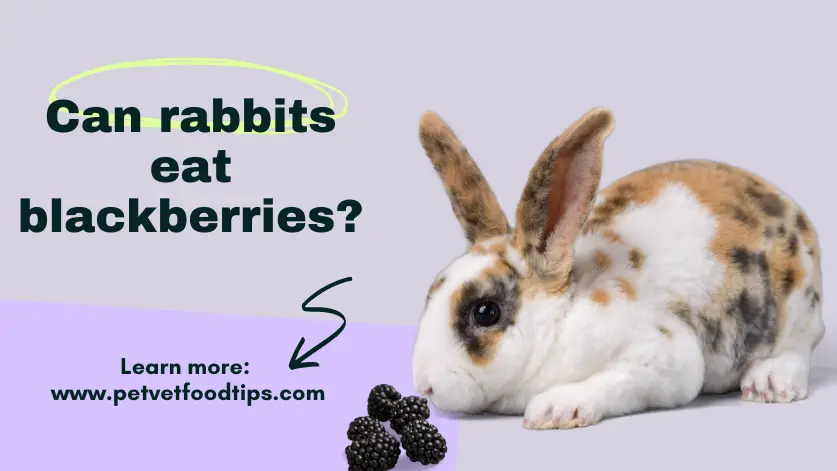
How Often to Give Blackberries to Your Rabbit
“Rabbits differ in age, size, and overall health traits; thus, it’s difficult to set a firm guide for how frequently to provide your pet with blackberries. However, we could provide some recommendations to help owners make knowledgeable decisions.
Considering the sugar content’s blackberries present, they should merely be accepted as an infrequent treat, the dosage should not exceed 1-2 blackberries at a time. A feasible commencement might be providing a small piece of one blackberry and gradually increasing the size if your rabbit seems to receive it well. Building up slowly like this enables your bunny to familiarize to the addition, and it allows you to supervise any possible side effects or changes in their behavior. Always examine your rabbit’s reaction after feeding them blackberries.
Understanding the Risks: Potential Issues of Overfeeding Blackberries
Understandably, some owners may be inclined to treat their rabbits often due to their pet’s evident enthusiasm for blackberries. However, issues could arise if a rabbit is overfed with these berries:
- Obesity: Blackberries, like all fruits, are high in sugar. Eating too much can cause weight gain problems, potentially leading to heart conditions and other related health complications.
- Digestive issues: Rabbits have sensitive digestive systems. An excess intake of fruits, including blackberries, can lead to digestive discomfort including bloating or diarrhoea.
- Dental decay: The high sugar content can also contribute to dental problems in rabbits, causing tooth decay or infections.
So while blackberries can add to the diversity of a rabbit’s diet and offer health benefits, owners should use discernment in defining the quantity fed. Keep a close eye on frequent tendencies adjusting with vivid behavioural changes.
Petvetfoodtips
The Reaction Your Rabbit Might Have to Blackberries
The response of a rabbit to blackberries could vary. Some seem to enjoy this fruity treat right away, while others might react differently or even disregard them altogether.
It’s crucial to observe for potential signs of intolerance that may include loose stools, reduced appetite, lethargy, or any behavioral changes. A spike in water intake could also indicate that the added sugar from the fruit is too much.
In contrast, a positive reaction would be your rabbit eagerly consuming the blackberry and having no adverse health effects afterwards. Improvement in skin or coat due to lucrative vitalization could be an added bonus.
Monitoring Your Rabbit’s Health After New Foods
Observing your rabbit after presenting new food items like blackberries is crucial. Pay close attention, as some signs of discomfort or illness might be subtle and easy to miss. Look out for changes such as:
- Altered Eating Habits: A decrease in appetite or lack of interest in favorite foods can indicate distress.
- Behavioral Changes: Has your rabbit’s energy level declined? Are they interacting less? Rabbits are social animals, and behavior changes can often point towards health issues.
- Bowel Changes: Irregularities in feces or soft stool are clear signs that the diet change is not suiting your rabbit.
In any uncertain circumstances, it’s always better to rely on the expert opinion of a vet. So, introduce your rabbit to new dishes in a very regulated manner, conservatively, and remain vigilant.
Other Fruits Your Rabbit Can Safely Enjoy
Apart from blackberries, rabbits can enjoy a host of different fruits. These include:
- Apples (seeds removed)
- Pears
- Peaches (no stone)
- Plums (no pits)
- Melons (watermelon, cantaloupe)
- Berries (strawberries, raspberries, blueberries)
These sweet delights should only comprise a small portion of your bunny’s diet, roughly 10% at most. And always remember to thoroughly wash fruit to remove pesticides or harmful elements before giving them to your rabbit!
Conclusion: Balancing Your Rabbit’s Diet for Optimal Health
Knowing what to feed your rabbit and what not can become an intimidating task. However, getting to know their specific needs, preferences, and tolerances can simplify this ordeal wholeheartedly.
Balancing a diet essentially involves about 80% hay, 10% high-quality pellets, and an assortment of appropriate fruits and vegetables making up the remainder. The fruits, like blackberries, should act as an occasional treat because of their high sugar content.
Remember: when in doubt about any dietary changes for your delicate ball of fur, checking with your veterinarian is always the best course to direct upon. Whenever imperative, engage between speculated reality hanging loosely whilst immersing simplicity practiced together in relentless supply.
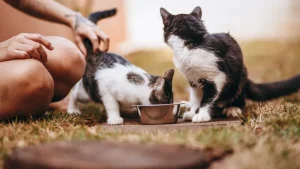
Best Low Magnesium Cat Food: A Nutrient Analysis
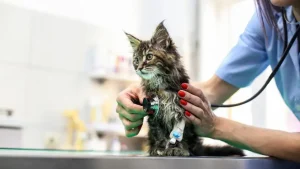
Best Cat Food for Cats with Feline Herpes | Petvet PetFood
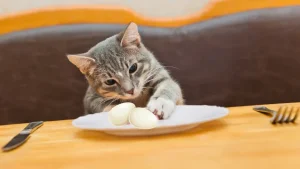
Can Cats Eat Raw Quail Eggs - Pet Vet Recommendation

Where can I get my rabbit neutered for free Guide?

How to Apologize When Your Dog Bites Someone - Vet Tips
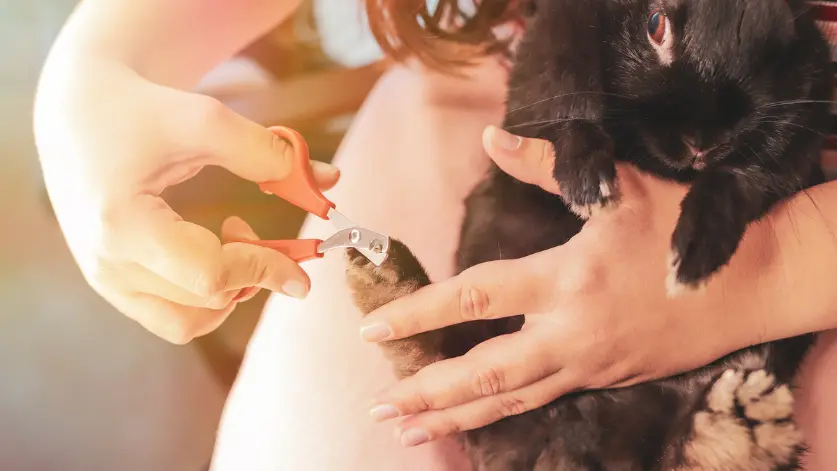
How to keep Rabbits nails short without cutting
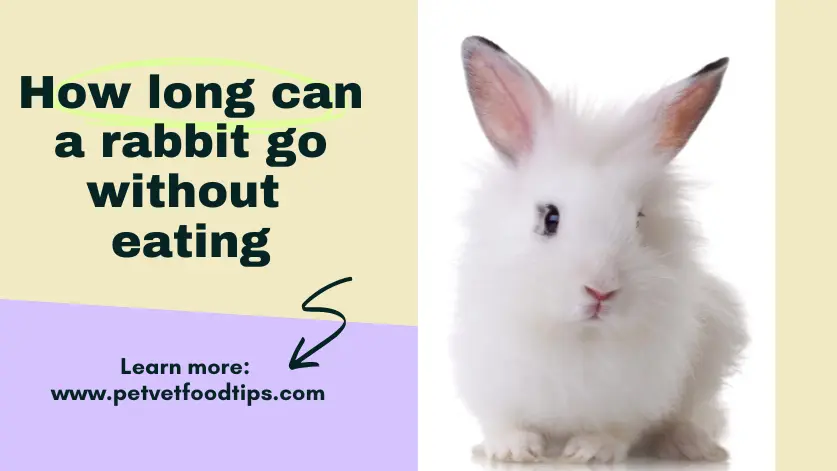
How long can a rabbit go without eating

How to Euthanize a Rabbit at Home with Benadryl

Doxycycline for dogs without vet prescription

How to keep Rabbits nails short without cutting


